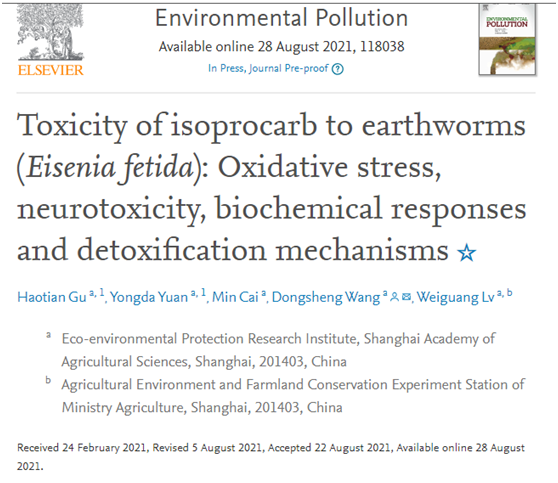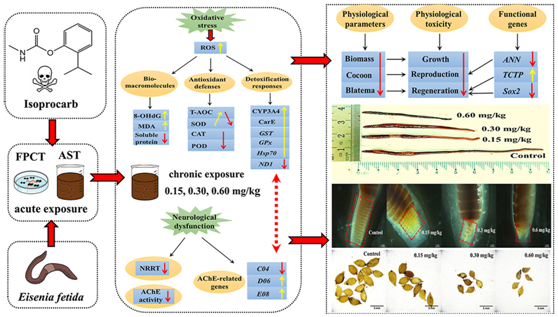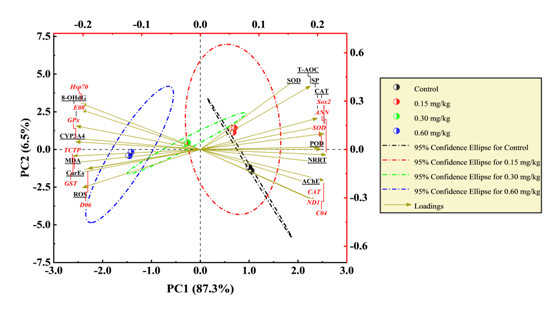Insect Pest Management Research Team Reveals the Toxicity Mechanism and Toxicological Effect of Insecticide Isoprocarb Exposure to Earthworms
On August 28, Dr. Haotian Gu from SAAS Insect Pest Management Research Team published a paper entitled “Toxicity of isoprocarb to earthworms (Eisenia fetida): oxidative stress, neurotoxicity, biochemical responses and detoxification mechanisms”in the top Environmental Science and Ecology journal Environmental Pollution (IF 8.071). This work investigated acute toxicity and evaluated chronic toxic effects of isoprocarb exposure towards Eisenia fetida at multiple levels using various approaches.

Isoprocarb (IPC) is a conventional carbamate with high insecticidal activity, however, generalized use of it may cause soil contamination and adversely implicate non-target biota. Following OECD standardized toxicological protocols, the toxic effects of IPC on E. fetida at lethal and sublethal concentrations were examined to elucidate its toxic modes of action as well as biochemical and detoxification responses of E. fetida. Acute toxicity tests showed that IPC induced a concentration-dependent rise of mortality, with LC50 of 8.20 μg/cm2 (48 h) in FPCT and 3.37 mg/kg (14 d) in AST, respectively. The ecotoxicological effects of IPC chronic exposure were measured by physiochemical, qRT-PCR and western blot analysis. Specifically, ROS, MDA and 8-OHdG contents were enhanced and T-AOC, SOD, CAT and POD activities diminished with increasing concentrations. While activities of CYP3A4 and CarE as well as expressions of Hsp70, GPx and GST elevated upon IPC treatments, responsible for detoxifying mechanisms as implied by principal component analysis (PCA). Meanwhile, IPC diminished NRRT and inhibited AChE activities along with expressions of AChE-related genes. All these striking alterations between IPC-exposed earthworms and controls were illustrated in PCA model. More importantly, growth, reproductive and regenerative toxicity of IPC were observed with reduced cast production and soluble protein content, suppressed ANN protein and gene expressions, reversely modulated TCTP and Sox2 gene and protein, respectively. Taken together, deleterious perturbations could be induced by IPC in biophysiological homeostasis of E. fetida primarily through oxidative stress and neural dysfunction. This study not only highlighted potential hazard of IPC to earthworms in the terrestrial ecosystem, but also expounded upon mechanisms underlying toxic modes of action for IPC and detoxification of earthworms.
Dr. Haotian Gu from the Insect Pest Management team is the paper’s first author, associate researcher Dr. Yongda Yuan is the paper’s co-first author and researcher Dr. Dongsheng Wang, the insect pest management team leader, is the paper’s corresponding author. This study is financially supported by Shanghai Agriculture Applied Technology Development Program.


Link: https://www.sciencedirect.com/science/article/pii/S0269749121016201
